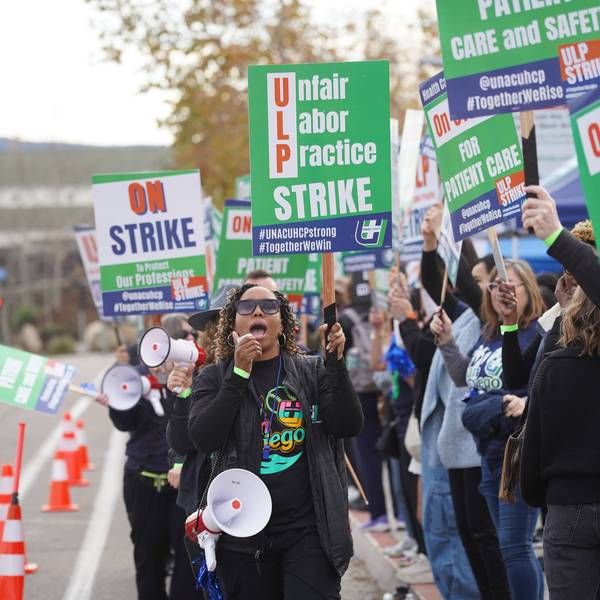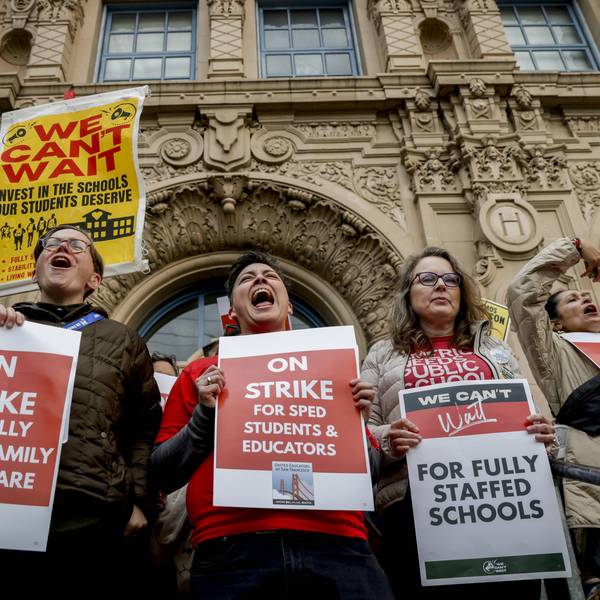More than 4,500 nurses at Stanford Health Care and Stanford Children's Health in Northern California voted on Friday to authorize a strike, capping off dozens of negotiating sessions that have stretched on for 13 weeks, including this past week when the healthcare workers completed their jobs without any contract in place.
The nurses' union, the Committee for Recognition of Nursing Achievement (CRONA) said that out of its 5,000 members, 93% voted in favor of going on strike to combat management's insistence that nurses work with inadequate resources and staff support, all while being forced to pick up extra shifts and having their benefits cut.
"We have been working extra shifts and powering through exhausting conditions because our patients and our colleagues need us. We need the hospitals' executives to show up for us."
"What message does it send when Stanford and Packard hospitals have hundreds of millions on hand from federal pandemic relief, and nurses are consistently taking on overtime and denying ourselves rest and recovery because the hospitals are not staffed adequately," said Colleen Borges, president of CRONA and a nurse at Lucile Packard Children's Hospital.
"We have been working extra shifts and powering through exhausting conditions because our patients and our colleagues need us. We need the hospitals' executives to show up for us," she added.
A survey taken by the union in November 2021 found that 45% of members were considering leaving their jobs.
According to CRONA, the hospitals have proposed new premiums for the nurses' healthcare plans, which were previously covered fully, and asked them to be "more available" for shifts.
As healthcare providers enter the third year of treating patients with Covid-19 on top of normal hospital operations, CRONA members are "overworked and exhausted," according to Mark O'Neill, a nurse in a post-cardiothoracic surgical unit who has also been involved in contract negotiations.
"It's no wonder so many of us are rethinking whether we have a future at Stanford and even the nursing profession," O'Neill said.
From 2020 to 2021, nurses at Stanford filed significantly more Assignment Despite Objections (AODs) documents, the union said, referring to reports that are filed when nurses are required to work despite having inadequate training or staff members.
"The hospitals remain out of touch with the grim realities facing [bedside] nursing, oblivious to the mental and physical toll [impacted] by the endless overtime and unsafe conditions," tweeted one member on April 1, a day after the nurses' contract expired.
The nurses rallied support in Stanford ahead of the vote to authorize a strike if they can't reach an agreement with hospital executives.
"Nurses really want to take good care of patients, and we need the hospitals to support us in doing that," one member said.
Among the union's demands are base pay increases of 7% to 8%, increased retirement benefits, a continuation of their fully covered health plans, and a say in how weekends are scheduled in their units to help nurses avoid burnout.
"The decision by members to overwhelmingly authorize a strike shows that we are fed up with the status quo of working conditions at the hospitals," said Borges. "We need contracts that allow us to care for ourselves and our families so we can continue providing world-class care."




